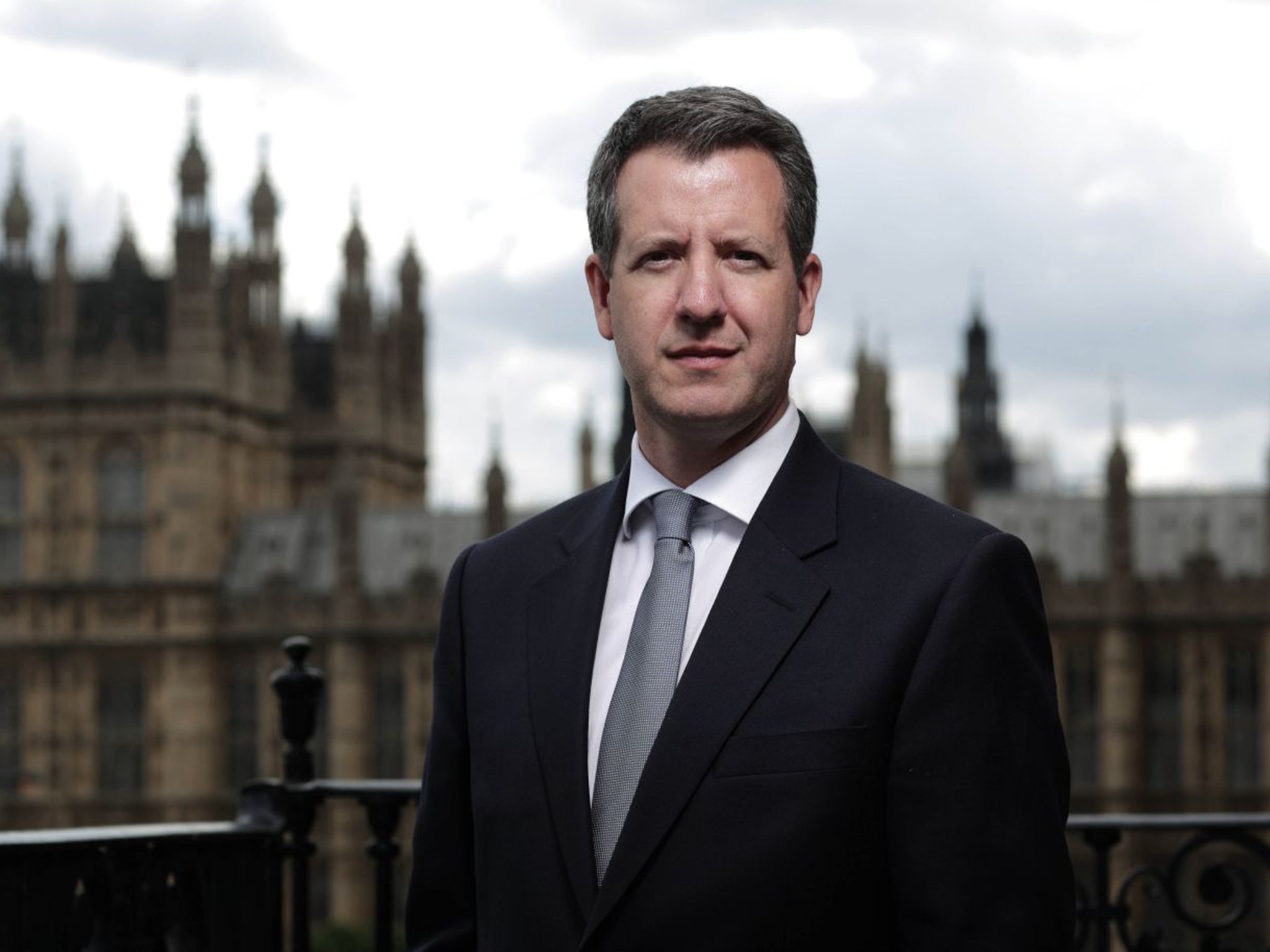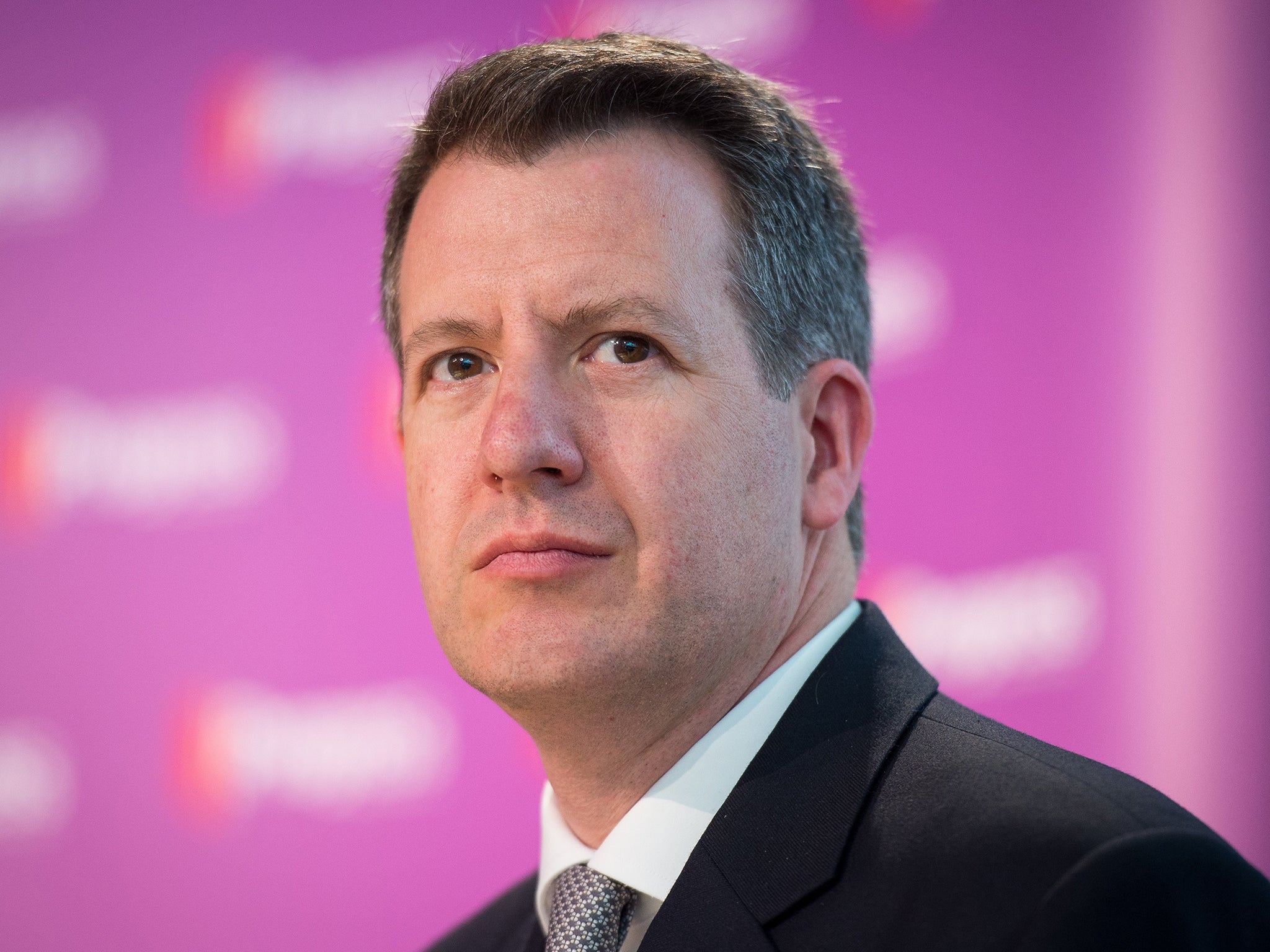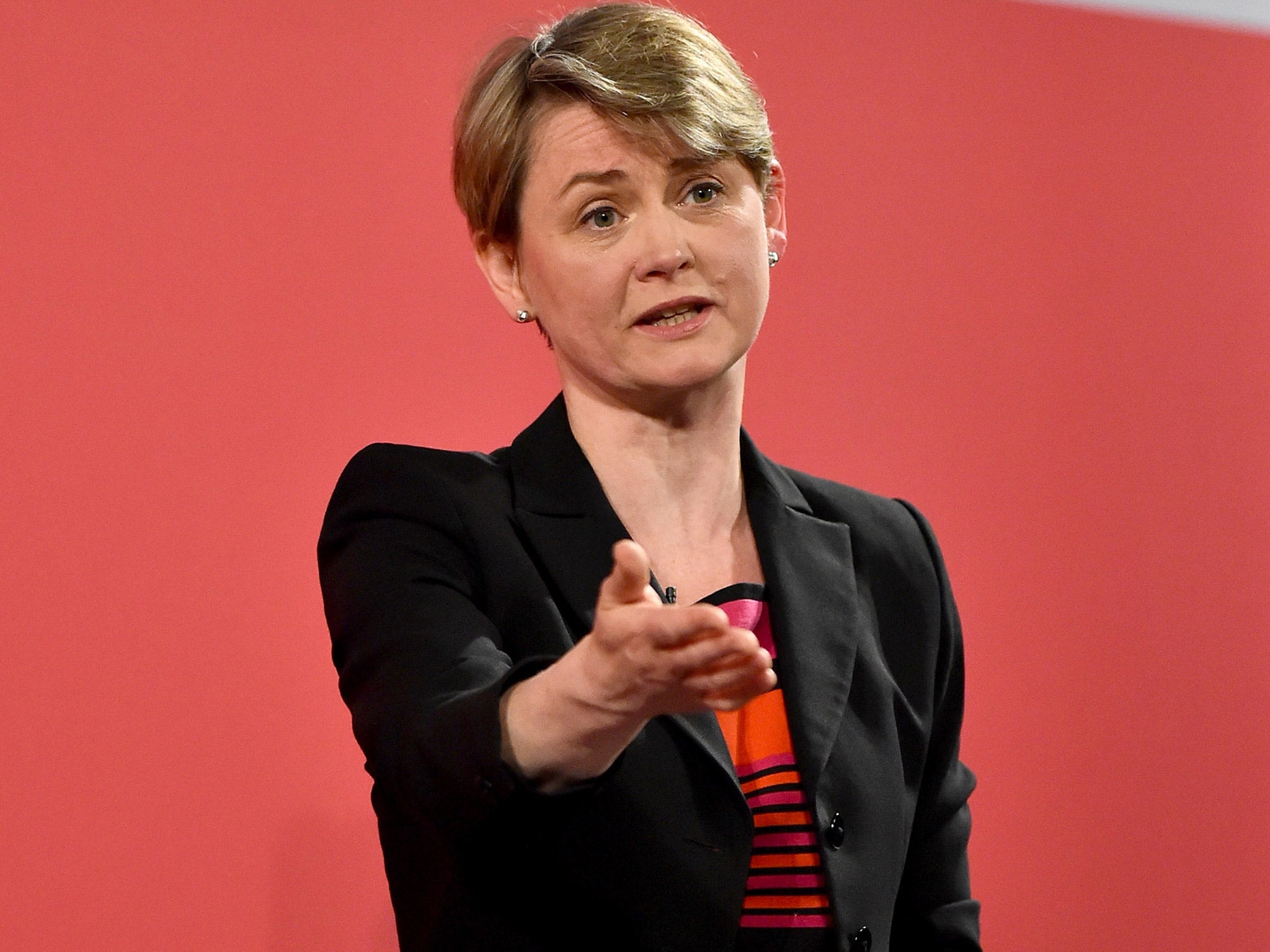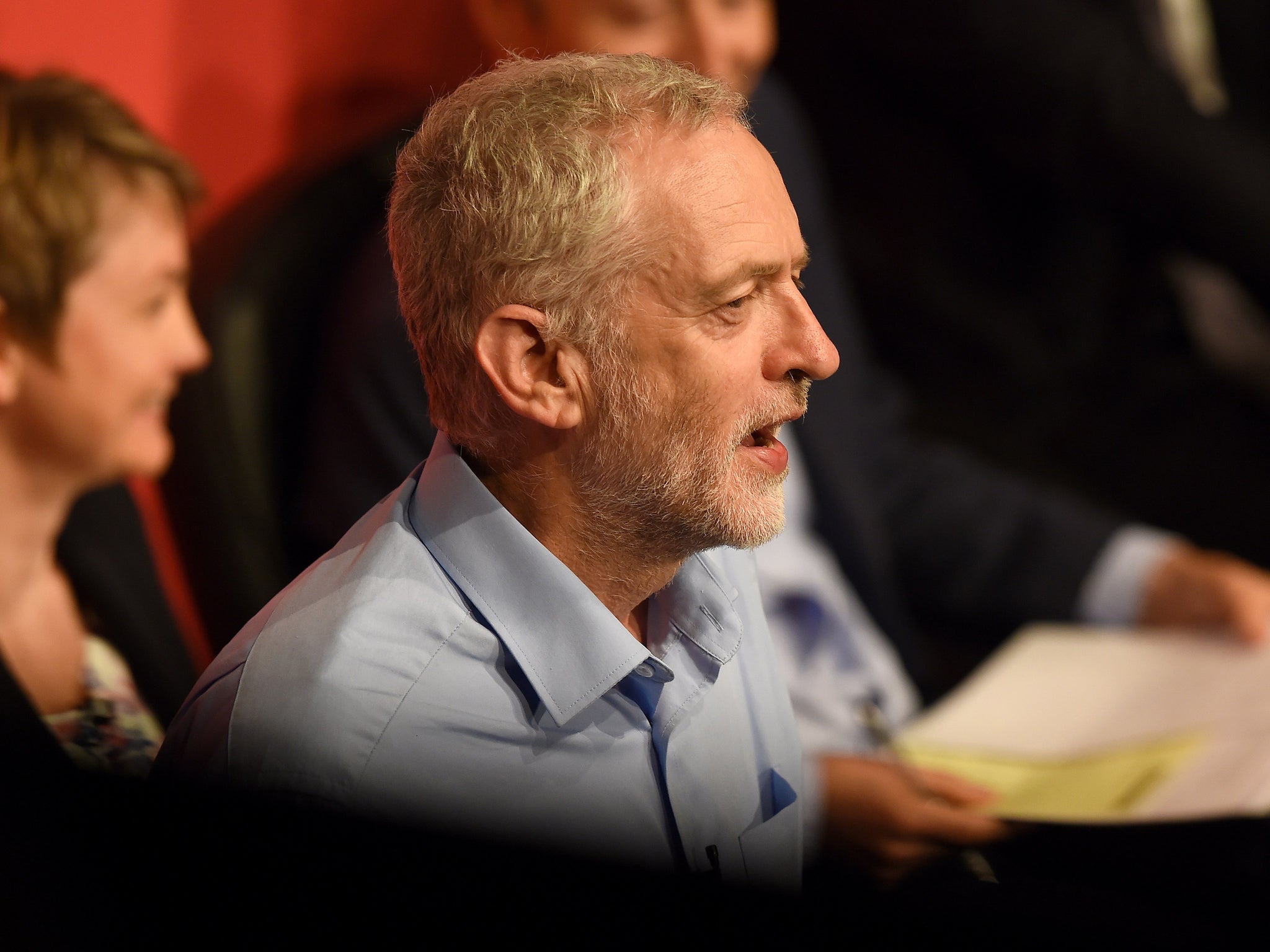Chris Leslie: Labour shadow Chancellor on why they lost the election and his reasons for backing Yvette Cooper
'It was down to us to address the hesitancy and anxiety people had - We didn’t do enough'

“Why is that bloke on the telly? He does Gordon’s photocopying”. The cry went up among Gordon Brown’s inner circle in the early hours of May 2, 1997, as Labour won its landslide. The 24-year-old on the TV was Chris Leslie, because he had won the safe Conservative seat of Shipley, West Yorkshire.
The Baby of the House in 1997 now has a man’s job. As shadow Chancellor in very different times for Labour, he must start to regain economic credibility and rebuild the party’s broken bridges with business.
Mr Leslie, who was number two to Ed Balls and promoted to his job after he lost his seat, is refreshingly candid about why the party lost in May. He pulls few punches as he admits that Ed Miliband failed the voters’ leadership test and that Labour did not convince people on the economy, business and welfare. He has been quick to ditch policies such as a 50p top rate of income tax and a mansion tax on homes worth more than £2m.

Mr Leslie says: “We had hovering pencil syndrome over the ballot paper. I think people wanted to be persuaded that there could be a change of government but when it came to the critical moment, they didn’t feel sufficiently convinced. It was down to us to address the hesitancy and anxiety people had. We didn’t do enough.”
He admits that Mr Miliband was part of the problem. “A lot of people have an image of what leadership looks like and feels like. He always found that difficult to overcome,” he says. “It swirled together with [a hung parliament deal with] Nicola Sturgeon, the SNP. The Conservatives were very successful in stirring that up. It was a risk too far for the country. It would not have been so successful if we had addressed people’s anxieties about business and the economy.”
The shadow Chancellor insists Labour’s manifesto was carefully costed, but concedes the party did not persuade people it could pay for its programme. “A bigger question was more to do with [our] attitude to business and markets. We didn’t address that properly,” he says.
Mr Leslie is picking up the pieces by holding forums with businessmen and women in different sectors. “The business community is not universally hostile to Labour,” he insists. “They got the impression from us that we wanted to run or control multiple markets simultaneously. It wasn’t one particularly policy, but in aggregate.”

If he could rewind the tape and do one thing differently, what would it be? “Reassure people that we understand that most people now work in the private sector or self-employment. Private sector employers want to know that a government understands and champions their businesses,” he says. “We had to show we understood how a modern market economy needs to be governed. We had a lot of support from people who worked in the public sector. We did not reach beyond that as much as we should have done.”
He accepts that Labour should have spelt out some big ticket spending cuts to show it was serious about clearing the deficit. His zero-based spending review identified savings of £2bn but many were relatively small changes. “We should have done more about welfare reform and public sector reform, not just giving the impression it was all about spending more or less money,” he says.
Mr Leslie strongly supported Harriet Harman, Labour’s acting leader, in saying Labour should not vote against the Government’s Welfare Bill, even though 48 Labour MPs rebelled. “She was right to recognise that the public mood has to be factored in to how we go forward,” he says.“Welfare was a subset of the economic credibility issue, part of the wider question. People want to know you can be trusted with taxpayers’ money,” he says.
Mr Leslie, now MP for Nottingham East after spending five years out of Parliament when he lost Shipley in 2005, insists: “There are not many advantages to losing a general election. The one thing you can do is review everything in your manifesto.”
He is not wasting any time. “People felt the mansion tax proposal was a bit too crude. A lot of people were not convinced it would not come down the price scale [below £2m] to where they were in more modest properties. That created some anxieties.”
The shadow Chancellor insists that “the 50p issue has gone”, that the question now is when George Osborne will cut the 45p top rate to 40p, as many Tory MPs want. He says Labour would oppose that - at least while Britain still has a deficit.
Having walked into Mr Osborne’s trap on welfare, Labour faces another - the Chancellor’s proposed law on whether the country should always run a budget surplus in good economic times. “We should be in favour of a surplus when we have got the productivity and strength in the economy to justify that. We shouldn’t be running a deficit forever,” Mr Leslie says. But he will set tests, such as being able to protect the vulnerable and have viable public services. He says Labour will oppose Mr Osborne’s “quite extreme” plans to cut departmental spending by 40 per cent, while supporting “sensible savings” in the government-wide spending review in November.
Mr Leslie describes Labour’s leadership election as “a fork in the road” . He understands why the left-winger Jeremy Corbyn appeals to many party members, saying they are “yearning for a ‘clear’ solution and straightforward answers.”

Will Mr Corbyn win? “It is plausible. But I don’t think he will. The majority of Labour members know we are not a pressure group or campaign. They are part of a political party that is about becoming fit to win and govern. I think common sense will prevail.”
Although some colleagues think Mr Leslie’s views are closer to those of Liz Kendall, he is backing Yvette Cooper because, he says, she has experience and is a good communicator. He doesn’t agree with Ms Cooper on everything: she supports a 50p top tax rate and they differ slightly on whether the Labour Government should have built up a surplus before the 2007 financial crisis.
Mr Leslie says the left’s unexpected challenge gives Labour a chance to resolve its future direction. “You can either sweep it under the carpet or have a debate. Although it is an uncomfortable period for the party, we have got to confront it. If we don’t, it will just come along closer to 2020. We have got to remember that two million more people voted Conservative than Labour. If we lose sight of that, we fail in our duty to learn the right lessons.”
Join our commenting forum
Join thought-provoking conversations, follow other Independent readers and see their replies
Comments
Bookmark popover
Removed from bookmarks